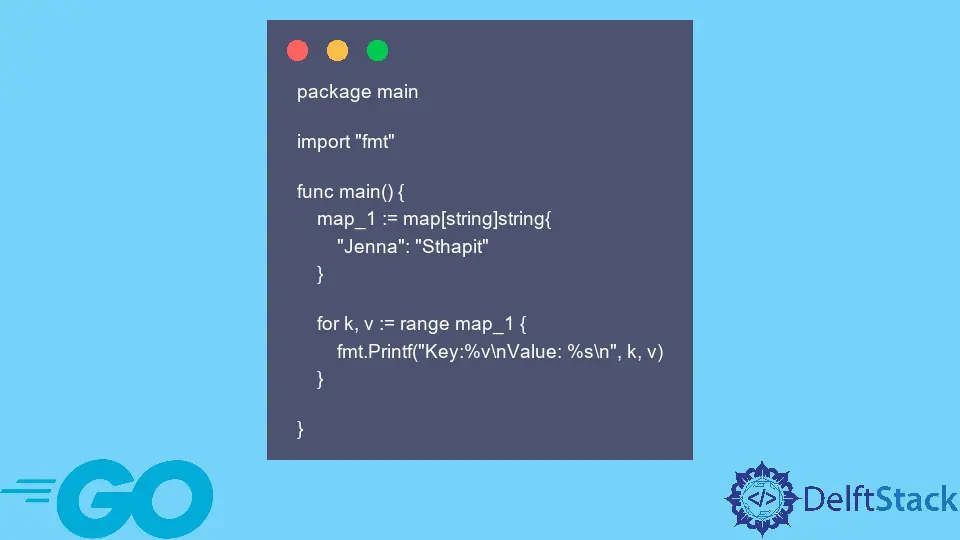How to Check if a Map Contains a Key in Go

Hash tables are implemented in Go as map data type. Go Maps can be viewed as a collection of unordered pairs of key-value pairs. Maps are one of the most powerful and versatile data types in Go because of their ability to perform fast lookups, adds, and deletes. We get two return values when we try to get the value of key in a map. If the second value is true, then key is present on the map.
Structure of map in Go
Syntax for map
var map_name map[KeyType]ValueType
Where, KeyType is any comparable datatype and ValueType is also any datatype including map itself too. The datatype for all the keys in a map must be the same. Similarly, the datatype for all the values in a map must also be same. However, the datatype of keys and datatype of values can be different.
package main
import "fmt"
func main() {
map_1 := map[string]string{
"Jenna": "Sthapit",
}
for k, v := range map_1 {
fmt.Printf("Key:%v\nValue: %s\n", k, v)
}
}
Output:
Key:Jenna
Value: Sthapit
In the above example, map_1 has string datatype for both keys and values. In map_1, Sthapit is value for key Jenna.
Check for key in Go-map
Syntax to Check if a map Contains key in Go
first_value, second_value := map_name[key_name]
The statement above returns two values viz. first_value and second_value. The first_value gives the value of key. If the map_name doesn’t contain key_name, the first_value will be the default zero value. Similarly, second_value is a boolean value which will be true if the key_name is present in the map. We can interpret first_value and second_value in different ways to check whether the map_name contains key_name.
package main
import "fmt"
func main() {
map_name := map[int]string{
0: "Alok",
1: "Reman",
2: "Riken",
3: "Rudra",
}
_, second_value_1 := map_name[1]
fmt.Printf("second_value for 1: %t\n", second_value_1)
_, second_value_9 := map_name[9]
fmt.Printf("second_value for 9: %t\n", second_value_9)
}
Output:
second_value for 1: true
second_value for 9: false
Here second_value for 0 is true as key 0 is present in the map_name. However, the second_value for 9 is false as key 9 is not present in the map_name.
package main
import "fmt"
func main() {
map_name := map[string]string{
"Giri": "Alok",
"Nembang": "Reman",
"Maharjan": "Riken",
"Jha": "Rudra",
}
if first_value, second_value := map_name["Giri"]; second_value {
fmt.Printf("Giri is present in map. Value is: %s\n", first_value)
} else {
fmt.Printf("Giri is not present in map.\n")
}
if first_value, second_value := map_name["Sthapit"]; second_value {
fmt.Printf("Sthapit is present in map. Value is: %s\n", first_value)
} else {
fmt.Printf("Sthapit is not present in map. \n")
}
}
Output:
Giri is present in map. Value is: Alok
Sthapit is not present in map.
In this example, we used if statement to check if a key exists in the map. Giri is a key and Sthapit is not a key of map_name.
Suraj Joshi is a backend software engineer at Matrice.ai.
LinkedIn